In the pantheon of bodybuilding, Ronnie Coleman stands as a colossus. Known as the ‘King of Bodybuilding,’ Ronnie Coleman’s name is synonymous with dominance, grit, and unparalleled dedication.
He equaled Lee Haney’s record by winning the Mr. Olympia title eight consecutive times, establishing a legacy that few have come close to challenging.
However, even giants face challengers, and four bodybuilders managed to unseat the king after his initial Olympia triumph in 1998.
This article delves into the fascinating journeys of Gunter Schlierkamp, Jay Cutler, Victor Martinez, and Dexter Jackson—four men who not only dared to challenge Ronnie Coleman but succeeded in defeating him during his reign.
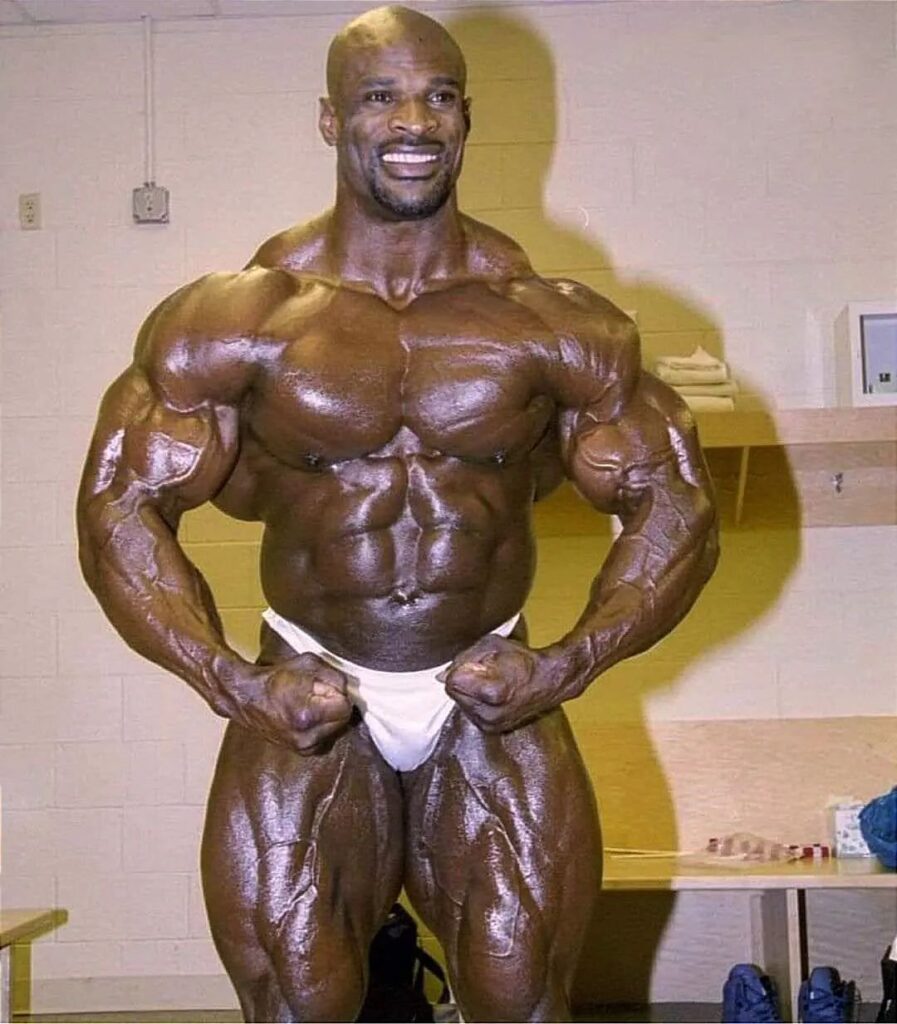
The Rise of Ronnie Coleman
Early Career Struggles
Ronald “Ronnie” Dean Coleman did not have an illustrious start in the world of professional bodybuilding. His journey began with a humbling 16th-place finish at the 1992 Mr. Olympia.
Despite his potential, Ronnie Coleman’s early years were marked by middling placements—15th in 1994 and 11th in 1995. It wasn’t until 1996 that he began to break into the top ten, finishing sixth, only to slip back to ninth in 1997.
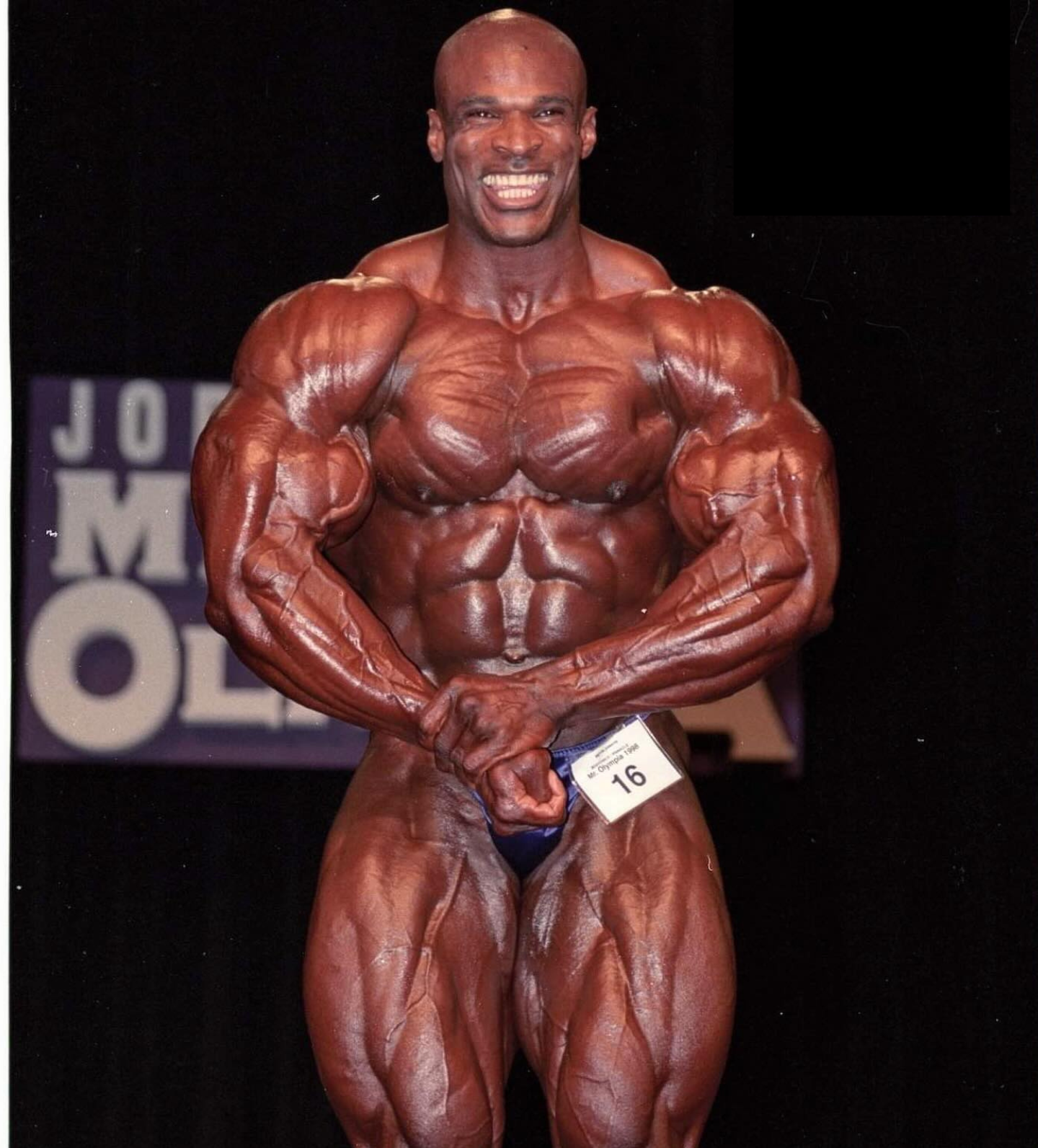
Ascension to Greatness
The bodybuilding world was left in shock when Dorian Yates, the reigning Mr. Olympia, retired in 1997.
This sudden vacancy created fierce competition among bodybuilding titans like Nasser El Sonbaty, Flex Wheeler, Shawn Ray, Kevin Levrone, and Chris Cormier.
Against all odds, it was Ronnie Coleman who emerged victorious, clinching his first Mr. Olympia title in 1998.
This win marked the beginning of an era of dominance, as Ronnie Coleman’s unprecedented mass and conditioning set a new standard in the sport.
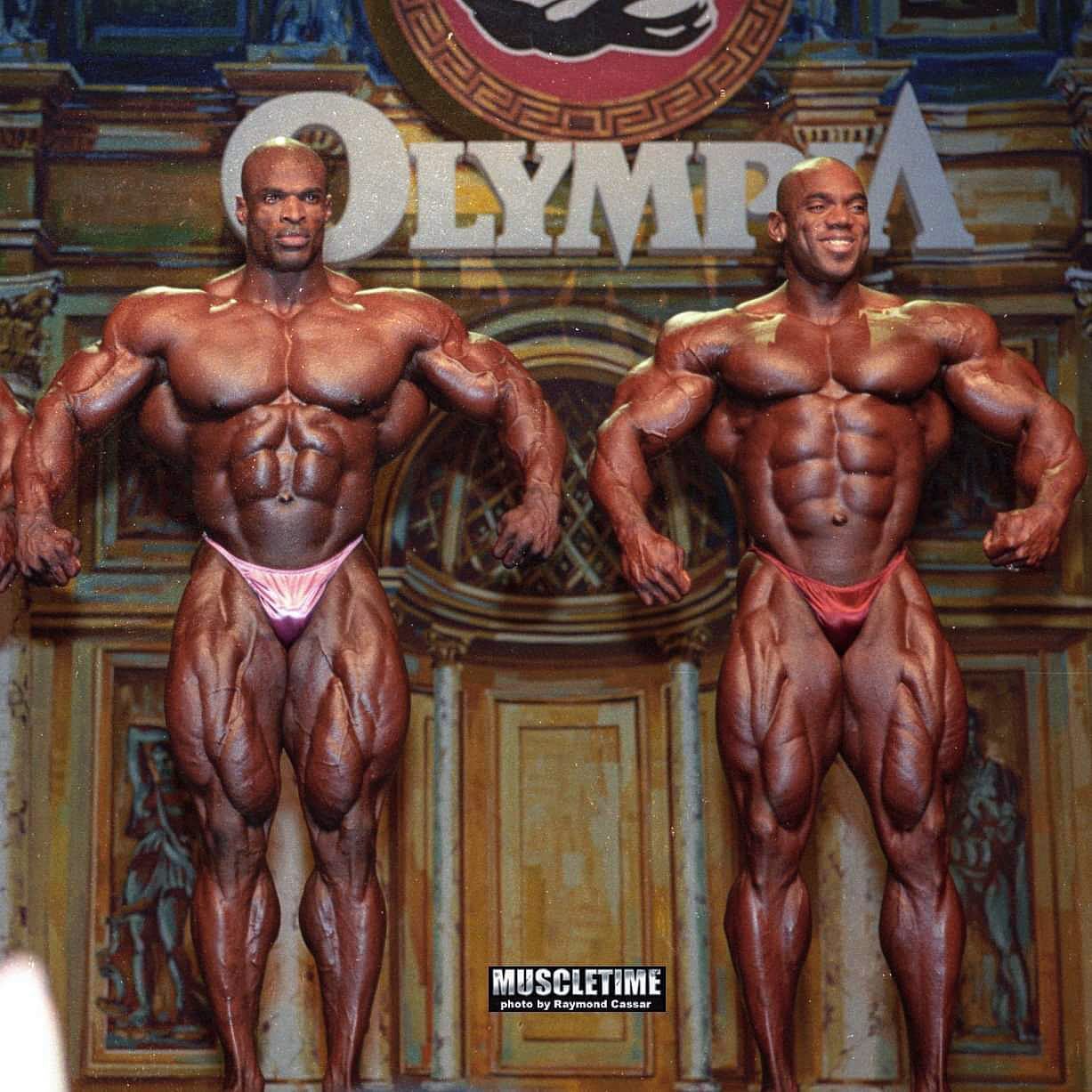
Cementing His Legacy
Following his first Olympia victory, Ronnie Coleman became a global icon, popularizing catchphrases like “Yeah buddy!” and “Lightweight, baby!” His incredible work ethic and relentless pursuit of perfection allowed him to outshine and outmuscle his competition year after year.
Legends like Flex Wheeler, Ray, and Levrone found themselves perpetually in Ronnie Coleman’s shadow, unable to claim the Sandow trophy.
Yet, as invincible as Ronnie Coleman appeared, there were moments when other competitors managed to topple this giant.
The Giants Who Toppled the King
Gunter Schlierkamp: The Gentle Giant

Contrary to popular belief, Jay Cutler was not the first to defeat Ronnie Coleman at his peak.
That distinction belongs to Gunter Schlierkamp, a German bodybuilder who achieved this rare feat at the 2002 GNC Show of Strength.
Early Career and Special Invitations
Joe Weider, the Father of Bodybuilding, had a special fondness for Gunter Schlierkamp, granting him Olympia special invites in 1998, 2000, and 2001.
Despite his lackluster performances—finishing 12th in 2000 and 15th in 2001—Weider saw potential in the smiling giant.
In 2002, Gunter Schlierkamp finally began to fulfill this potential, finishing fifth at the Mr. Olympia, a significant leap from his previous placings.
The 2002 GNC Show of Strength
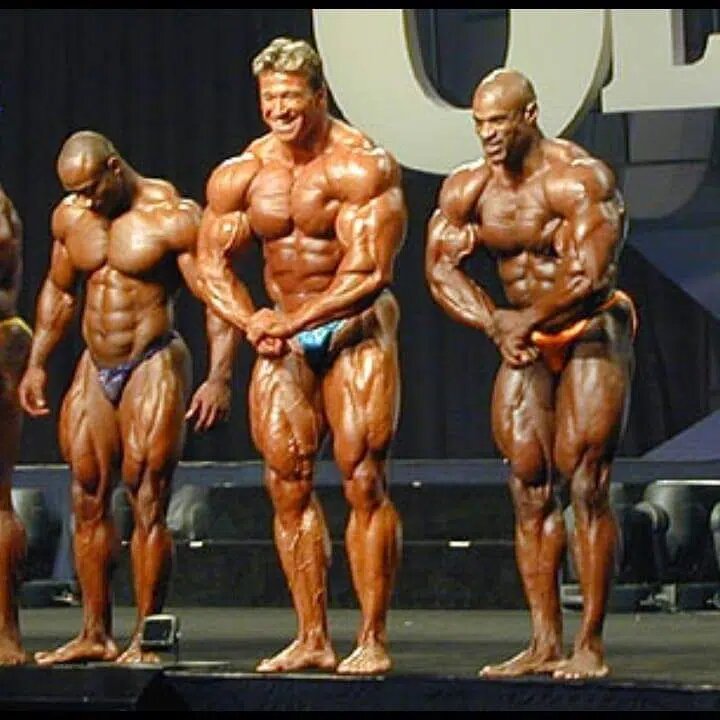
Just three weeks after the 2002 Olympia, Gunter Schlierkamp brought an even better package to the GNC Show of Strength.
His superior upper-body thickness, conditioning, and separation posed a significant challenge to Ronnie Coleman, who was not at his best.
When Gunter Schlierkamp was announced the winner, it marked only the second time in history that a reigning Mr. Olympia had lost a non-Olympia contest, the first being Sergio Oliva to Arnold Schwarzenegger in 1970.
Aftermath and Legacy
Though Gunter Schlierkamp’s victory was monumental, it was short-lived in terms of long-term dominance.
He continued to compete, securing respectable finishes but never clinching the Olympia title.
His best Olympia performance came in 2005, where he placed fourth, and he retired after finishing 10th in 2006. Despite this, his 2002 victory remains a highlight in bodybuilding history.
Jay Cutler: The Rivalry that Defined an Era
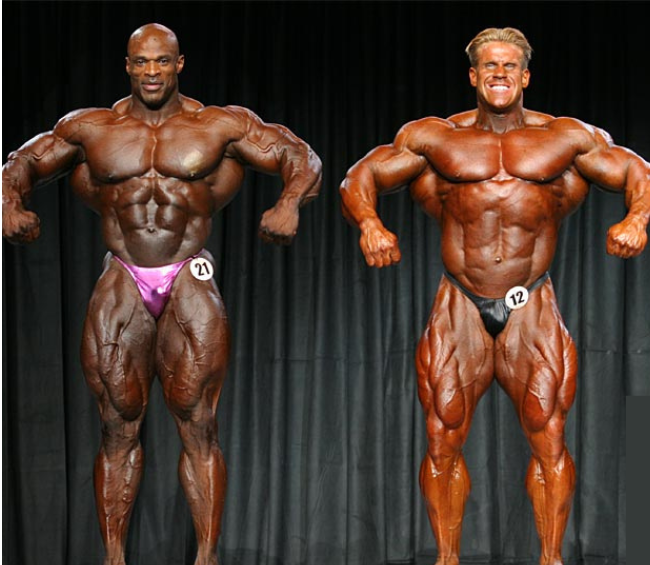
Jay Cutler’s rivalry with Ronnie Coleman is one of the most storied in bodybuilding history.
Jay Cutler emerged as a significant threat to Ronnie Coleman’s reign after finishing second at the 2001 Olympia.
Early Encounters and Strategic Choices
After his runner-up finish in 2001, Jay Cutler chose to skip the 2002 Olympia to focus on building more mass and refining his physique.
This decision, in retrospect, was a strategic misstep as Ronnie Coleman was not at his peak that year, presenting a missed opportunity for Jay Cutler.
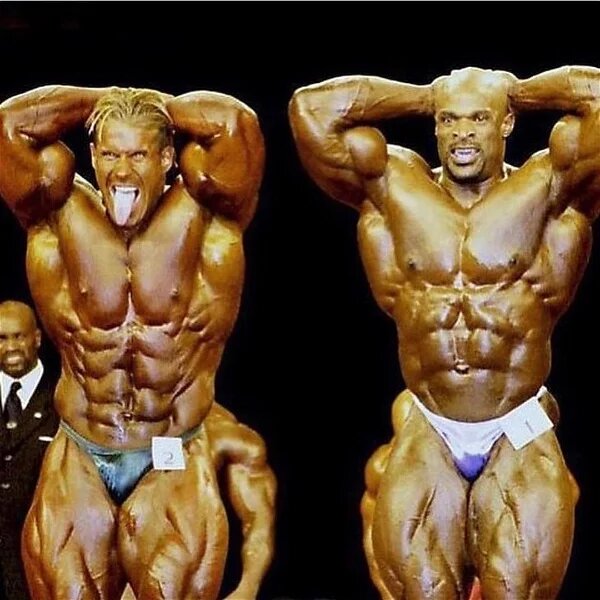
Climbing the Ranks
Jay Cutler returned with a vengeance in 2003, but despite significant improvements, he could not dethrone Ronnie Coleman.
The next two years saw intense battles, with Jay Cutler finishing second in both 2004 and 2005.
These contests are remembered for their intense pose-offs and the fierce competition between the two giants.
The Historic 2006 Olympia
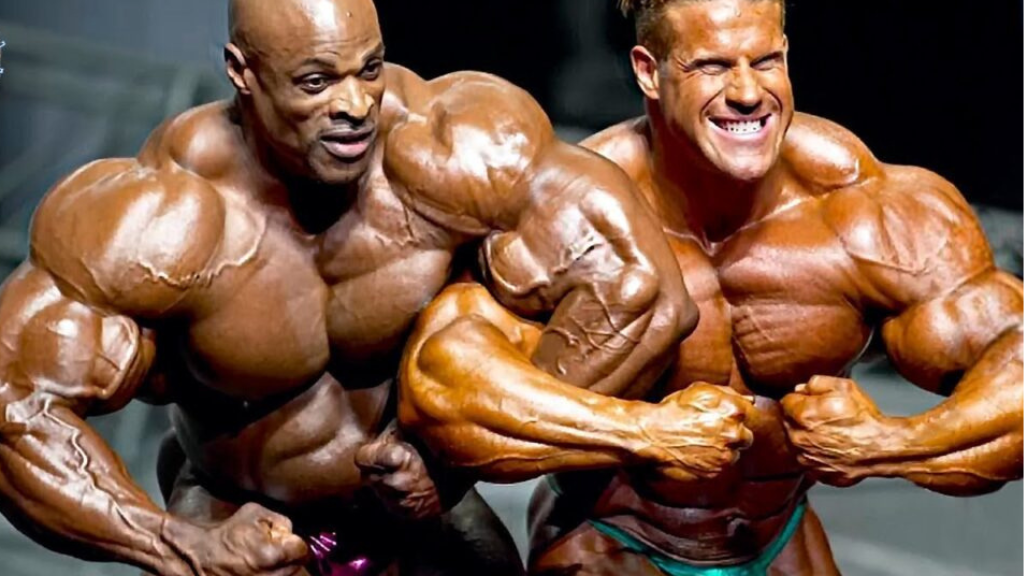
Jay Cutler’s perseverance paid off in 2006 when he finally defeated Ronnie Coleman, ending his eight-year reign.
This victory not only cemented Jay Cutler’s status as the new king but also marked a pivotal shift in bodybuilding dynamics.
Jay Cutler went on to win the Olympia three more times, solidifying his legacy as one of the greatest bodybuilders in history.
Victor Martinez: The Dominican Dominator
Victor Martinez is another bodybuilder who managed to defeat Ronnie Coleman but never claimed the Mr. Olympia title.
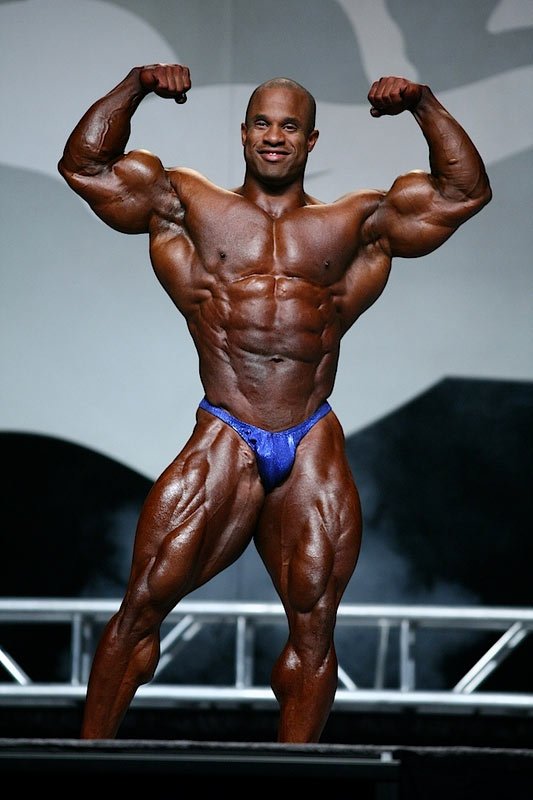
Early Career and Rise
Martinez’s professional career was marked by steady progress. He debuted at the Olympia in 2004, finishing ninth, and improved to a top-five finish in 2005.
His breakthrough came in 2006 when he placed third, behind Jay Cutler and Ronnie Coleman.
2007: The Pinnacle Year
In 2007, Martinez achieved his career highlight by winning the Arnold Classic USA. Riding this momentum, he entered the Olympia as a strong contender.
While Jay Cutler retained his title, Martinez managed to defeat Ronnie Coleman, who fell to fourth place. This marked the end of an era, as it was Ronnie Coleman’s final Olympia appearance.
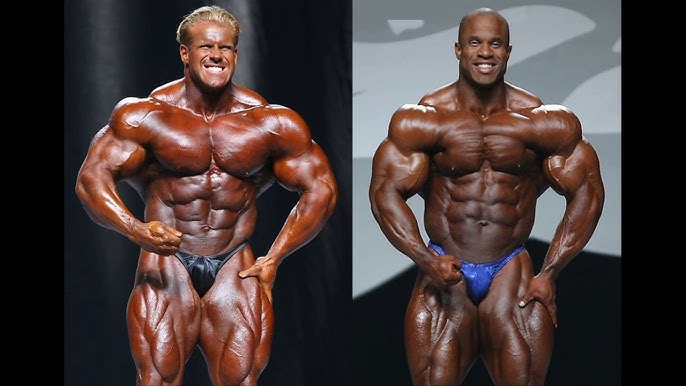
Post-2007 Struggles
Martinez’s career was marred by injuries and personal setbacks following his 2007 success.
A severe knee injury in 2008 and legal issues in 2011 significantly impacted his career trajectory.
Despite these challenges, Martinez continued to compete, achieving notable finishes until his retirement in 2020.
Dexter Jackson: The Blade’s Sharp Ascent
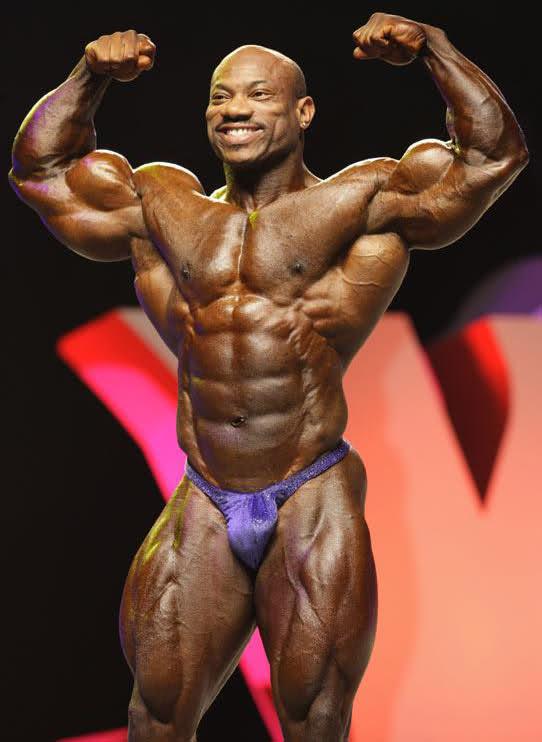
Dexter “The Blade” Jackson is renowned for his consistency and longevity in professional bodybuilding.
With 29 pro show wins, he holds the record for the most professional men’s bodybuilding titles.
Early Years and Breakthrough
Jackson’s rise in the bodybuilding world was marked by steady progress.
He broke into the top five at the Olympia in 2002 and secured a podium finish in 2003. Although he fell out of the top three in 2004, he recaptured his fourth-place spot in 2006.
2007: Defeating the King
Jackson’s most significant achievement came in 2007 when he defeated Ronnie Coleman to finish third at the Olympia.
This victory was a prelude to his dream run in 2008, where he reclaimed the Arnold Classic title and then went on to win his first Mr. Olympia, defeating Jay Cutler.
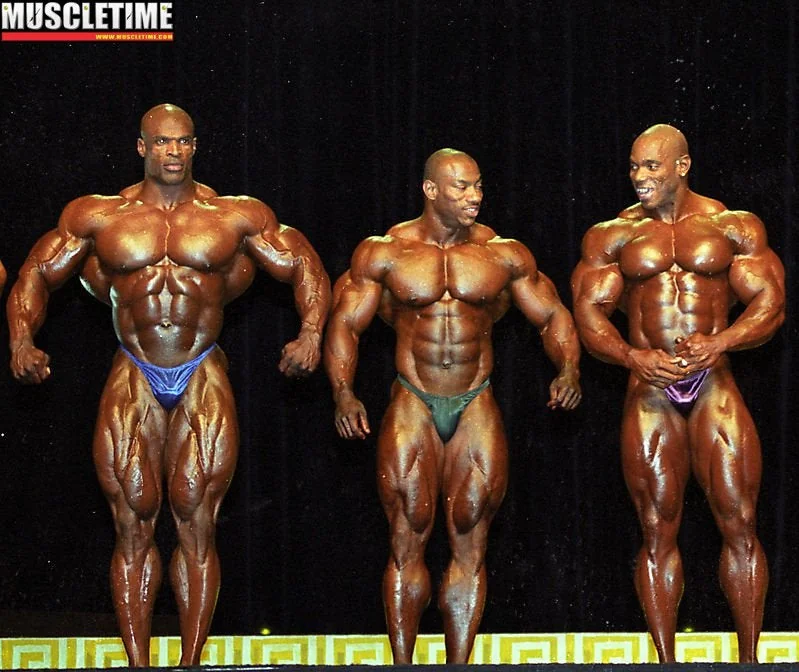
Longevity and Legacy
Jackson’s career is notable for its longevity and consistency. He holds the record for the most Mr. Olympia appearances (20) and is the only bodybuilder to win both the Mr. Olympia and Master’s Olympia titles.
His career highlights include five Arnold Classic victories, further cementing his status as one of the sport’s greats.
Conclusion
The legacy of Ronnie Coleman is one of unparalleled dominance in the world of bodybuilding.
His eight consecutive Mr. Olympia titles and his influence on the sport are a testament to his greatness.
However, the stories of Gunter Schlierkamp, Jay Cutler, Victor Martinez, and Dexter Jackson remind us that even the greatest champions can be challenged and, at times, defeated.
These four bodybuilders not only achieved personal milestones by defeating Ronnie Coleman but also enriched the sport with their rivalries, perseverance, and outstanding performances.
Their victories over Ronnie Coleman are not just footnotes in his illustrious career but significant chapters in the history of bodybuilding, illustrating the ever-evolving nature of the sport and the relentless pursuit of excellence that defines it.
